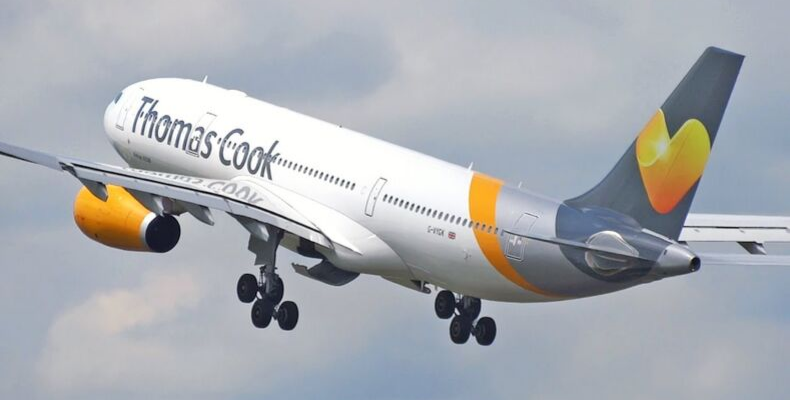Tour agents and operators in Goa are in a state of panic, as news of Thomas Cook UK’s collapse couldn’t come at a worse time. With just a week before the start of high season in Goa, the collapse of the 178-year-old company means that over 35,000 British foreigners will not be making the chartered flights. Thomas Cook UK was single-handedly responsible for chartering an average of 2000 tourists a week to Goa, and arranging for all travel and stay requirements. Now that the company has gone belly-up hotels and resorts across Goa have suddenly lost thousands of room bookings, and will likely face major losses on funds that have not been recovered from the travel agents. Foreign tourism in Goa is set to take its worst hit in recent times, something that Savio Messias, president of TTAG has deemed a “big, big blow” to the tourism industry in Goa.
An unexpected turn of events
Thomas Cook is one of the UK’s oldest companies. The travel agency has seen two world wars during its tenure and was a pioneer in chartered air travel and tourism. For the past few years, Thomas Cook has been facing stiff competition from online travel agents. With the ease of arranging one’s own travel, stay, and accommodation, for a while now, Thomas Cook has been playing catch up, and loosing out to the Free Independent Traveller (FIT).
The company reached out to private investors and even the Government for a cash infusion of 200 Million Pounds, but was denied. This inevitably led to the crash late last night. Thomas Cook had attempted a merger with MyTravel in 2007 that eventually went south, and since then, the company has been on the rocks. Last night’s collapse leaves over 22,000 staff members jobless, and worse still, an estimated 600,000 tourists are stranded worldwide. The British Government has already launched its largest repatriation since World War Two titled ‘Operation Matterhorn’ to bring back 150,000 British holidaymakers currently stranded in destinations like Cuba, Turkey, Bulgaria and the US.
Grounded and liquidated
With the denial of the request for 200 Million Pounds after an agreement between the company’s stakeholders and proposed new money providers could not be reached, Thomas Cook UK was forced to liquidate the company. Though it started off as just a travel agent, Thomas Cook UK grew to be a 360-degree tour operator and airline company with key destinations in Asia, North Africa, Southern Europe, the Mediterranean, and the Carribean. Goa alone accounts for 30,000 to 40,000 British tourists each year. The liquidation of the company means that all Thomas Cook flights have been grounded, and all travel agencies closed putting over 22,000 employees, 9,000 of whom work in the UK out of a job. It should be noted that Thomas Cook in India, however, is not affected. Thomas Cook India is owned by Fairfax Financial Holdings Canada and is not a part of Thomas Cook UK.

The effect on tourism for Goa
Almost every year for the past few years, Goa has seen foreign tourism take a major hit. Whether it’s the fall of the Russian Reubel or demonetisation, the number of foreign tourists coming to Goa has been declining. With the collapse of Thomas Cook UK, foreign tourism in Goa is likely to take a massive hit. In a statement to the press, Savio Messias, president of TTAG said, “Thomas Cook is a very reputed company, bringing in British tourists. British tourists are loved by the local Goans and the hotel industry. Thomas Cook has been operating for the last 25-30 years in Goa. And losing out on Thomas Cook is a big, big blow to the industry.”
British tourists take the opportunity to come to Goa during the months starting November, right up to March, avoiding to brutal UK winters. “Last year, they were getting around 2,000 passengers per week,” said Messias, “on an average, a passenger stays for around 14 days, sometimes 21 days and sometimes seven days also. If you count the number of room nights, it is very, very large.” Many star properties and boutique hotels rely on charter business from agencies like Thomas Cook UK, who bring in these long-stayers on packages that cover one to two weeks – some times even more. These packages are booked months in advance and ensure that the properties have business. Now, unfortunately, there will be thousands of rooms made suddenly available.
To offset the sudden availability of inventory, hotels will be forced to drop their prices in an attempt to attract independent travellers to take up the rooms. Alternatively, some hotels may even have to look at tapping into the domestic market, to bring in tourists from other parts of the country. There is also hope that direct flights coming in from Russia and Israel continue to bring in some foreign tourism. The lasting effects are yet to be seen, but it is clear that hundreds of businesses, especially boutique resorts in Goa with smaller inventories will definitely feel the effect – especially those that rely on repeat business from specific tour operators. In the coastal areas, the smaller motels are occupied almost entirely by British charter guests who prefer the comfort and familiarity of a family-run resort, rather than a starred property. Many of these businesses have relied heavily on their partnership with agencies like Thomas Cook, but will now be left wanting.
How do you think the collapse of Thomas Cook UK is going to affect tourism in Goa? Let us know in the comment section below.


